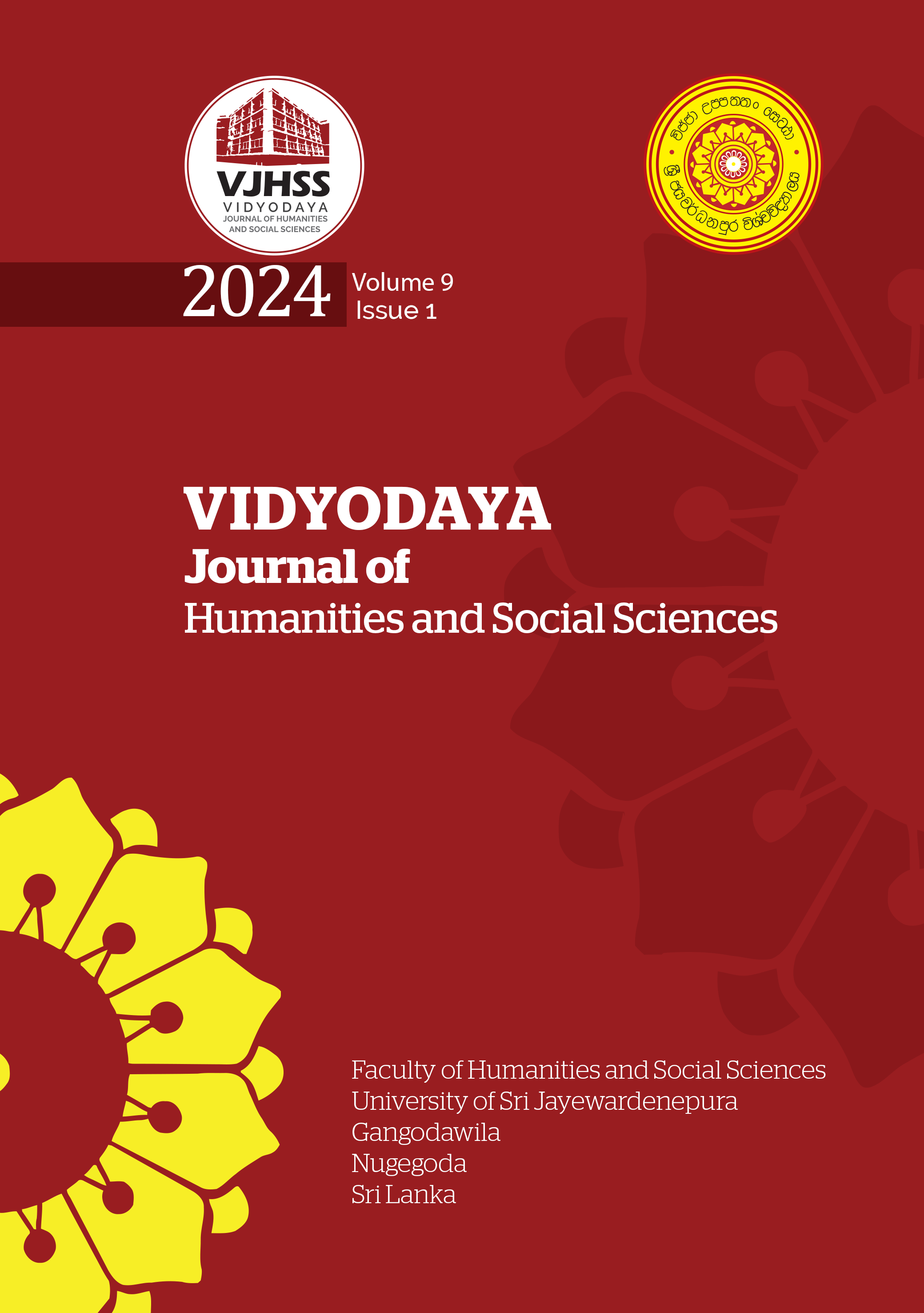Perilous Journeys Across the Sea in Search of Prosperity: Causes of Illegal Migration from Sri Lanka and Present Trends (A Case Study of Illegal Immigration to Australia
Abstract
Illegal migration is a vexing contemporary issue for the countries from which these illegal travelers originate as well as the destination countries where they hope to settle. Therefore, countries now struggle to curb illegal migration across the world. After the end of the civil war in 2009, the favorite destination of Sri Lankans planning to migrate illegally has turned out to be Australia. Attempts by people from Sri Lanka to travel to Australia illegally have turned out to be a veritable phenomenon in recent years. This is mainly attributed to certain causes and trends that have prompted people to make attempts to reach Australia illegally. The research problem of this study is to figure out why people try to migrate to Australia by illegal means. The main objective of this study is to propose a feasible solution to mitigate the negative impacts of illegal migration to Australia. To answer these questions, this study has used both qualitative and quantitative methodologies. In addition to the secondary data collected from written sources, 10 case studies were undertaken, in which in-depth interviews were carried out using open-ended and unstructured questions. Discourse analysis and phenomenological data analysis tools were used to analyze the data. Findings of the research showed that a variety of causes, such as poor economic prospects, social problems, and political marginalization, were responsible for the increasing trend towards illegal migration to other countries. This study also found a paradigm shift in the illegal migration of Sri Lankans from Australia to New Zealand.



